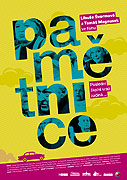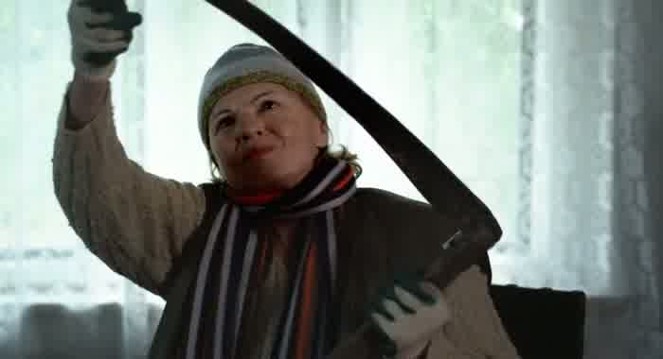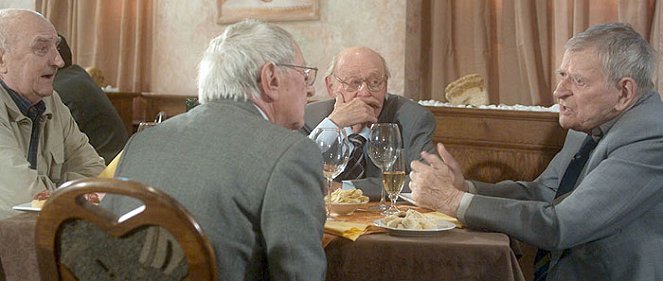Regie:
Vlado ŠtancelDrehbuch:
Tomáš MagnusekKamera:
Radek VolfMusik:
Tomáš HajíčekBesetzung:
Libuše Švormová, Tomáš Magnusek, Stanislav Zindulka, Květa Fialová, Eva Florianová, Jan Skopeček, Miriam Kantorková, Lubomír Lipský st. (mehr)Inhalte(1)
The story itself points out the life of contemporaries in their eighties. All of them experience the same age, yet each of them experiences it in a quite different way. Each of them differs in mental and physical freshness, they differ in how they experience the present and yet they have something in common – the past. After sixty years, former classmates reunite at a school meeting, undoubtedly the last one, face to face to their classmate Miluška Bínová. Bínová, once the most popular classmate, comes today, after many years, to her native town determined to find who of her classmates formerly ruined her life. However, Bínová does not only come back, after so many years, to the native town and to her classmates but she also has to find way to her family and grandson who tries to arrange the meeting. Yet the movie is not about revenge but about the life of the today´s elderly, about their relationships with their family and with the society and about relationships among generations... (Verleiher-Text)
(mehr)Videos (1)
Kritiken (1)
A classic example of the divisiveness of the current state of Czech cinema. When it comes down to it, we have a theme. We don't even have to go far to get it because it's eavesdropped from life. We have actors of all ages who are capable and obviously still enthusiastic about working. We've got someone to put the whole project together. But then the part starts when that person wants a low-budget solution with the final execution, though a movie with an all-star cast should be supported very easily. But this is the Czech Republic. That means that converting it into a feature film feels like an amateurish exercise, with the real unwanted gloss provided by the utterly incredible non-actors. I'm sad to see that Witness is characterized by the work of Vlado Štancel and that the entire acting generation has not found a single decent counterpart in the young actors. Let's set aside the fact that many of the scenes come across as cold, tear-jerking calculus, and others are very cheap extravaganzas. Unfortunately, thanks to them, we are once again on the edge of the mirror of Czech smallness, of the Czech present. So why did I give it such a good review? Because perhaps it is precisely due to this ambivalence that there is at least one young person who understands what it meant to be a unionist in the 1950s and so someone who signed the Charter in the 1970s.
()


